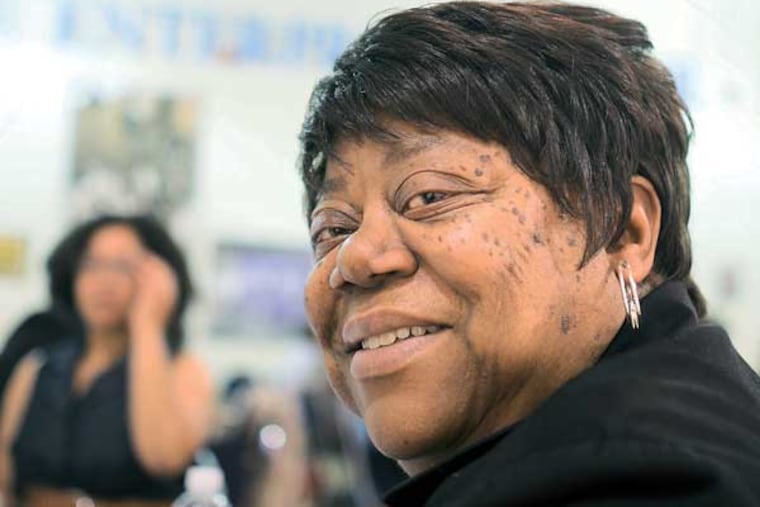A community talks about fixing itself
How do you fix a broken neighborhood? It's a question that has proved painfully persistent in Philadelphia. And nobody among the five dozen activists who gathered Wednesday had the solution. But they believe they might have the beginnings of an answer, at least for one impoverished area.

How do you fix a broken neighborhood?
It's a question that has proved painfully persistent in Philadelphia.
And nobody among the five dozen activists who gathered Wednesday had the solution. But they believe they might have the beginnings of an answer, at least for one impoverished area.
They began hashing out what the new federal Promise Zone designation could mean and do for a desperately poor and blighted part of West Philadelphia.
"I'm really hopeful," said Gwendolyn Morris, a retired educator who is secretary of the Mantua Civic Association and a 42-year neighborhood resident. "I think we are on the brink of something really great."
Who attended? Practically everyone with an interest in the outcome: Residents, city officials, transportation leaders, financial whizzes, community organizers, housing officers, educators, and church people.
People circulated among the tables to talk about problems that require multifaceted cures: crime, homelessness, poverty, education, safety. The guest list included several representatives from the city government, along with those from the United Way, EPA, SEPTA, Free Library, and Drexel University, and federal housing, education, and health officials.
Everyone was encouraged to attend "Funeral for a Home" on Saturday, when clergy and residents will memorialize decrepit 3711 Melon St. before it is ceremonially demolished.
The Wednesday gathering at 45th and Market Streets - in a building once home to Dick Clark's American Bandstand - was an opportunity for leaders to discuss core goals and partnership structures for the zone at the beginning of a years-long initiative.
In January, the Obama administration designated five Promise Zones nationwide, offering them federal attention in a collaborative effort to halt decades of decline. But the designation brings no federal money, instead offering extra points in competitive grant evaluations and other, unspecified government assistance.
The White House says that if Promise Zones are to flourish, Congress must to act to offer tax credits to businesses that create jobs.
It's surely harder to go forward without the backing of government cash, said Kira Strong, a vice president of the People's Emergency Center, which serves homeless women and their young children. But, she said, looking around the meeting room, the hall would be empty if people thought the task were impossible.
"We're all here," she said. There's a feeling that though the Promise Zone is a place of pressing need, it also holds great promise.
The zone, home to 35,315 people, covers roughly two square miles, bounded by Girard Avenue to the north, Sansom Street to the south, the Schuylkill to the east, and 48th Street to the west. The zone includes all of Mantua and all or part of Powelton, West Powelton, and Belmont.
The overall poverty rate is 51 percent, in parts surging to 80 percent. Nearly 15 percent of the houses are vacant, double the city average. Crime threatens everyone.
At the same time, the zone has energetic neighborhood groups such as the Mantua Collaborative, a leader in striving for rebirth. It abuts Center City, includes 30th Street Station and the zoo, and sits within walking distance of Drexel University and the University of Pennsylvania.
"The neighborhood really has a deep history and a lot of assets," said Eva Gladstein, executive director of the Mayor's Office of Community Empowerment and Opportunity. The move to create change in West Philadelphia, "not that it's easy, but, we thought, achievable."
The goals of the Promise Zone are as big as the challenges: attract new business and investment, increase employment, improve housing, and raise educational opportunities.
No one has attached specific numbers or measures to those aims, although federal officials want quantifiable results.
"This is the start of a long-needed conversation about the Promise Zone," said DeWayne Drummond, a lifelong Mantua resident and president of the civic association. "It's a step up on climbing this ladder we've got to climb."